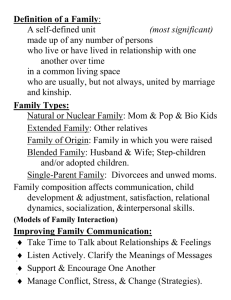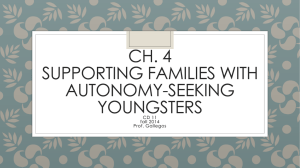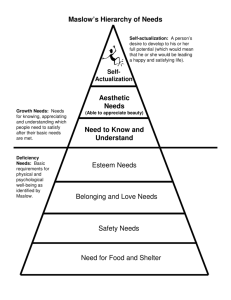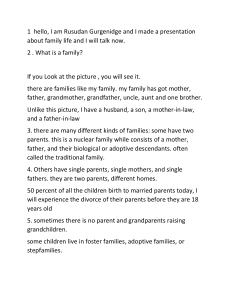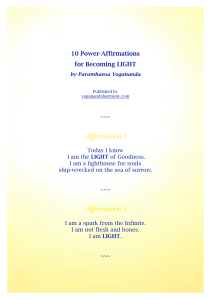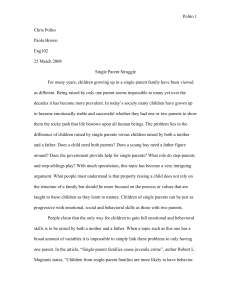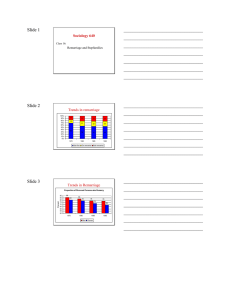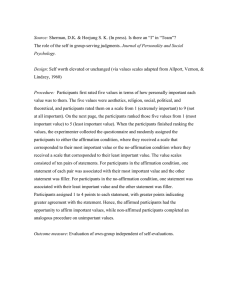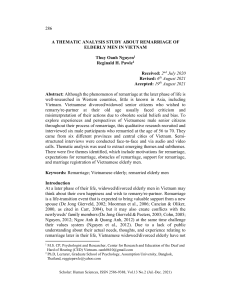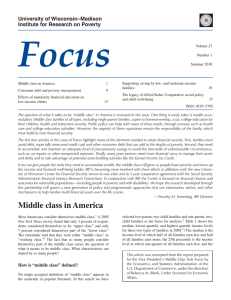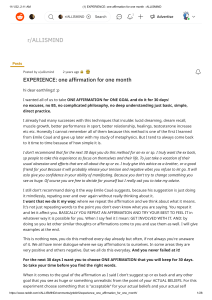Ch. 7 pg. 165
advertisement
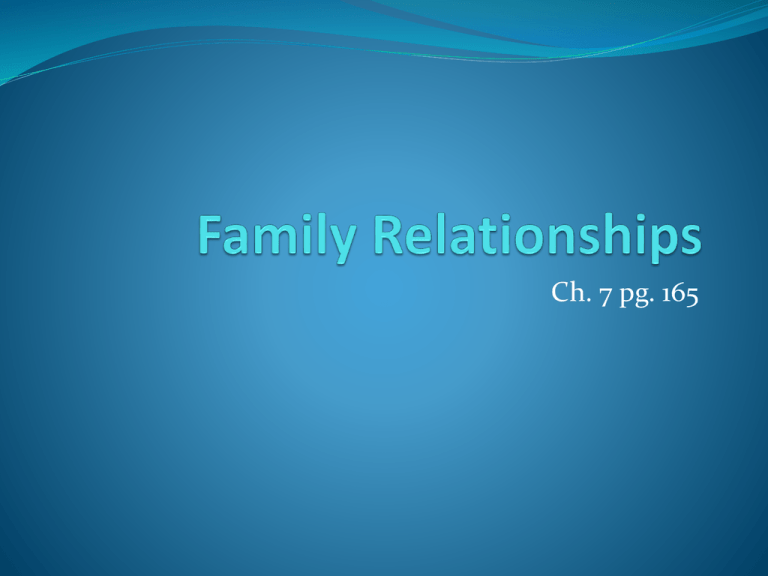
Ch. 7 pg. 165 Family Unit What is a family? Relationships have a strong influence on your total health Healthy families provide support Help children and teens develop values and skills to become successful members of society Healthy families are the foundation of a healthy society. Types of Families Nuclear – two parents and one or more children living in the same place Single-parent Blended – married couple with children from previous marriages or situations Extended – includes additional relatives Adoptive Foster – temporary placement of children in the homes of adults who are not related to them Roles within Family What are the responsibilities of parents in a family? What are the responsibilities of children? What are the responsibilities of teenagers/young adults? What are the responsibilities of extended family members? Family and Your Health • Families meet most of your basic needs • Helps strengthen all three aspects of your health triangle Physical Provide most of Maslow’s physiological needs Medical Care Limiting Behavior Health Skills Mental/Emotional Love and Support Provide a safe environment to express and deal with emotions Share problems in confidence Self-esteem Provide affirmation Social Help infants, toddlers, and young children to communicate and get along with others Cooperation and conflict resolution Culture Ethical Values Responsibility Honesty Respect Characteristics of a Strong Family Good Communication Caring and Support Respect Commitment Trust Changes in Structure Birth and Adoption Separation and Divorce Remarriage Death Changes in Circumstances Moving Finances Illness and disability Alcohol or other drug abuse Coping with Changes Open communication Take on more responsibilities to help other members Self-help Professional Counseling
